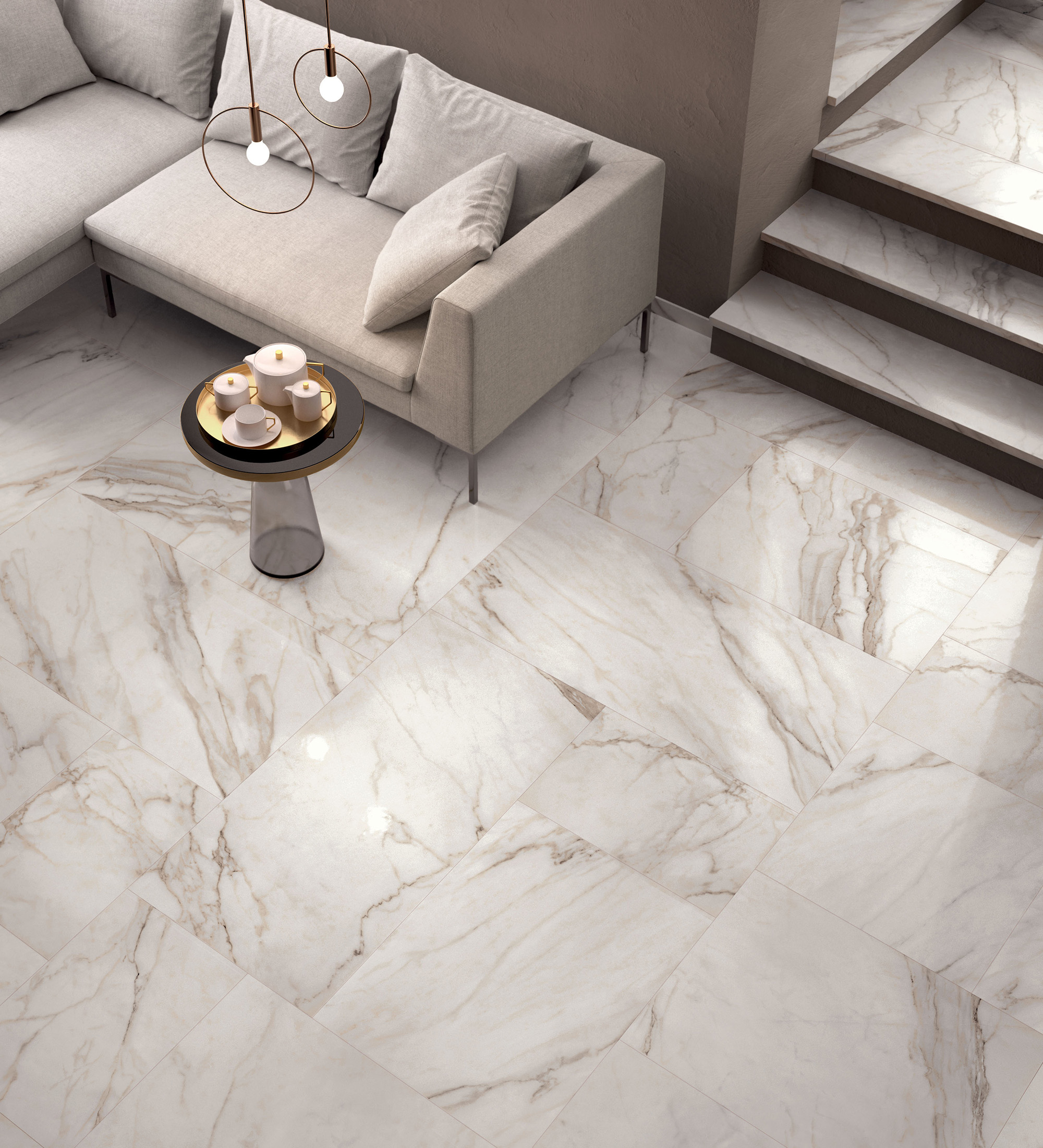Porcelain and ceramic tiles are both popular choices for flooring, offering durability, style, and versatility for a variety of spaces. However, understanding the key differences between porcelain vs ceramic floor tile is crucial for making an informed decision that suits your specific needs and preferences. While both options share similarities in appearance and installation methods, they differ in composition, water absorption, durability, and price.
By exploring the distinctions between porcelain vs ceramic tile flooring, you can confidently choose the perfect tile that will enhance your home's aesthetic and stand the test of time. Let's highlight a few features that may help you select which one is right for your home.
Table of Contents
-
Porcelain vs ceramic tile flooring: what are they & what are their pros/cons?
- What is porcelain tile and what are its benefits?
- What is ceramic tile and what are its benefits
- Porcelain vs ceramic tiles - application differences
- Visit Flooring Superstores Calgary's tile shop in Calgary, AB

Porcelain vs ceramic tile flooring: what are they & what are their pros/cons?
What is porcelain tile and what are its benefits?
The primary material in porcelain installations is clay, though there are also other natural ingredients added too. Porcelain tile is a type of ceramic tile made from a finer, denser clay that is fired at higher temperatures. After being fired in a kiln, the tiles can be used in their original state or transformed to mimic other materials, such as concrete, wood, or stone.
This process results in a tile that is more durable, water-resistant, and less porous than standard ceramic tile. These tiles come in unglazed or glazed. While the glazed option limits the coloration and texture to the surface, unglazed tiles offer colors throughout the entire material.
What is ceramic tile and what are its benefits
Ceramic tile is a classic and versatile flooring material made from clay that is fired at high temperatures (although they are typically fired at lower temperatures than porcelain). It is typically finished with a protective glaze that gives it color and enhances its durability. Ceramic tile is known for its affordability, wide range of design options, and ease of maintenance, making it a popular choice for kitchens, bathrooms, and other areas of the home.
Because ceramic tile is fired at a lower temperature than its porcelain counterpart, these tiles are typically more porous, softer, and less dense. That is not to say they are delicate, but instead, their construction is simply different. In many cases, they are favored as flooring by homeowners who live in hotter climates, who prefer their cooler-to-the-touch feel. Thus, their naturally cooler material is considered a bonus and very welcome in the summer months.
Porcelain vs ceramic tiles - application differences
While both porcelain and ceramic tiles are versatile, their unique properties make them better suited for different applications. Porcelain's superior water resistance and durability make it the ideal choice for high-moisture areas like bathrooms, shower walls, and even outdoor patios. Its ability to withstand heavy foot traffic also makes it suitable for entryways, kitchens, and hallways where spills and wear and tear are common.
Ceramic tile, while not as water-resistant as porcelain, still offers versatility for various applications. It's a popular choice for walls, backsplashes, and lower-traffic areas like bedrooms or home offices. With its wide range of colors, patterns, and styles, ceramic tile can add personality and charm to these spaces without compromising on durability.
However, it's important to note that not all ceramic tiles are created equal. Some ceramic tiles may be specifically designed for wall applications and might not be suitable for floors. Always check the manufacturer's recommendations to ensure you choose the right tile for the intended use. When in doubt, consult with a flooring professional who can guide you in selecting the most appropriate tile for your specific project.

Visit Flooring Superstores Calgary's tile shop in Calgary, AB
If you're looking for tile flooring in Calgary, AB for an upcoming renovation, then stop by our Flooring Superstores Calgary showroom in Calgary, AB, to view our latest styles. Our tile shop proudly serves Rocky Ridge, Cougar Ridge, Royal Oak, Tuscany, Nolan Hills, Sage hill, Evanston, Valleyridge, Crestmont, Bridlewood, Shaughnessy, Chaparral, Millrise, Evergreen, Lake Bonavista, Sundance, Deerrun, McKenzie, New Brighton, Copperfield, Auburn Bay, Mahogany, Cranston, Acadia, Chestermere, Cochrane, Okotoks & Airdrie regions, helping homeowners with many redesign projects. Need answers to flooring questions? Call us or visit us today!







